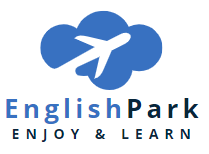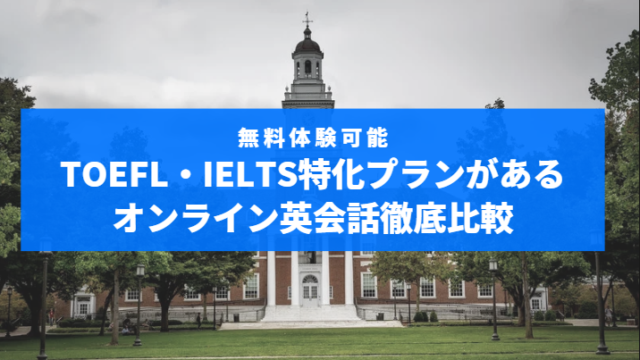TOEFLのスピーキングセクションは、多くの受験者にとって最も難しいパートの一つです。限られた時間内で、様々なタイプの質問に明確かつ説得力のある回答を提供することが求められます。このセクションで高得点を取るためには、適切なテンプレートを使い、戦略的に準備と練習を行う必要があります。
ここでは、Independent TasksとIntegrated Tasksのそれぞれについて、詳細なテンプレートを紹介し、効果的な回答を構成するためのコツを解説します。また、スピーキング力を向上させるための練習方法や心構えについても言及します。
Independent Tasksのテンプレートと戦略
Independent Tasksは、自分の意見や経験について話すことが求められるタスクです。与えられたトピックについて、明確で一貫性のある回答を構成することが重要です。以下の2つのタスクについて、詳細なテンプレートを見ていきましょう。
Task 1: 意見を述べる
このタスクでは、与えられたトピックについて自分の意見を述べ、それを裏付ける理由を提示する必要があります。
テンプレート:
- 導入:トピックを言い換え、自分の立場を明確に述べる。
- 理由1:立場を支持する理由を述べ、具体例で説明する。
- 理由2:立場を支持するもう一つの理由を述べ、具体例で説明する。
- 結論:自分の立場を再確認し、主要ポイントをまとめる。
例:
Topic: Do you agree or disagree with the following statement? Children should be required to help with household chores as soon as they are able to do so.
回答例:
I strongly agree that children should be expected to assist with household chores as soon as they are capable. There are several reasons for this.
First, helping with chores teaches children valuable life skills. For instance, when a child learns how to do laundry or prepare simple meals, they gain practical knowledge that will serve them well in adulthood. These skills foster independence and self-sufficiency.
Second, participating in household chores helps children develop a sense of responsibility. When a child is assigned specific tasks, such as setting the table or feeding a pet, they learn the importance of fulfilling their obligations. This sense of responsibility translates into other areas of life, like school and work.
In conclusion, I believe that involving children in household chores from an early age is beneficial. It teaches them essential life skills and helps them develop a strong sense of responsibility.
Task 2: 経験について話す
このタスクでは、与えられたトピックに関連する自分の経験について話し、その経験から学んだことや影響を述べる必要があります。
テンプレート:
- 導入:トピックに関連する経験を紹介する。
- 詳細1:経験の具体的な詳細を説明する。
- 詳細2:経験のもう一つの具体的な詳細を説明する。
- 結論:経験から学んだことや影響について述べる。
例:
Topic: Describe a time when you had to work with a group of people to achieve a common goal. What was the goal, and what steps did you take to achieve it? What challenges did you face, and how did you overcome them?
回答例:
One experience I had working with a group to achieve a common goal was during my senior year of high school. Our goal was to organize a successful fundraiser for a local charity.
To achieve this goal, we first formed a committee and assigned roles based on each person’s strengths. I was responsible for creating promotional materials and reaching out to local businesses for sponsorships. We collaborated to plan the event, which included a silent auction and a talent show.
One challenge we faced was securing a venue for the event. Many places were either too expensive or already booked. To overcome this, we reached out to our school administration and were able to use the school auditorium free of charge. We also had to be creative with our budget, relying on donations and volunteers to keep costs low.
Through this experience, I learned the importance of effective communication and delegation in teamwork. By working together and leveraging each person’s skills, we were able to organize a successful event that raised a significant amount of money for the charity. This experience also taught me the value of perseverance in the face of challenges.
独立タスクに臨む際は、以下の点に注意しましょう:
- メモを取る:準備時間中に、回答の構成やキーワードをメモしましょう。
- 明確な立場:自分の意見や立場を明確に述べることが重要です。
- 具体例の使用:自分の主張を裏付けるために、具体的な例を挙げましょう。
- 一貫性のある回答:話の流れが論理的で一貫しているように気をつけましょう。
- 時間配分:各タスクの回答時間は45秒から60秒程度です。時間を守るよう注意しましょう。
Integrated Tasksのテンプレートと戦略
Integrated Tasksは、読み物や講義、会話の内容を理解し、要約や統合した回答を行うことが求められるタスクです。提示された情報を正確に把握し、要点をまとめる力が問われます。以下の4つのタスクについて、詳細なテンプレートを見ていきましょう。
Task 3: 講義を要約する
このタスクでは、講義の内容を要約し、主要ポイントを明確に伝える必要があります。
テンプレート:
- 導入:講義のトピックと主要ポイントを紹介する。
- 要点1:講義の要点を述べ、具体例で説明する。
- 要点2:講義のもう一つの要点を述べ、具体例で説明する。
- 結論:講義の全体的な主旨をまとめる。
例:
Lecture topic: The benefits of bilingualism
回答例:
The lecture discusses the advantages of being bilingual. The main points are cognitive benefits and social advantages.
First, the speaker mentions that bilingualism enhances cognitive abilities, such as problem-solving and multitasking. For example, studies have shown that bilingual individuals are better at switching between tasks and filtering out irrelevant information compared to monolinguals.
Second, the lecturer points out that being bilingual offers social advantages. Bilingual individuals can communicate with a wider range of people and have access to more job opportunities. For instance, many companies seek employees who can speak multiple languages to serve diverse customer bases.
In summary, the lecture highlights the cognitive and social benefits of bilingualism, such as improved problem-solving skills, task-switching abilities, and increased job prospects.
Task 4: 講義と読み物の関係を説明する
このタスクでは、講義と読み物の内容を比較し、関係性を説明する必要があります。
テンプレート:
- 導入:講義と読み物のトピックを紹介し、関係性を明確にする。
- 類似点:講義と読み物の類似点を述べ、具体例で説明する。
- 相違点:講義と読み物の相違点を述べ、具体例で説明する。
- 結論:講義と読み物の関係性をまとめる。
例:
Lecture topic: The benefits of a plant-based diet
Reading topic: The environmental impact of meat production
回答例:
The lecture and the reading passage both discuss food choices, but they focus on different aspects. The lecture emphasizes the health benefits of a plant-based diet, while the reading passage examines the environmental consequences of meat production.
On one hand, they are similar in that both mention the importance of reducing meat consumption. The lecture suggests that a plant-based diet can lower the risk of chronic diseases, such as heart disease and diabetes. Similarly, the reading passage points out that decreasing meat intake can reduce greenhouse gas emissions and deforestation associated with animal agriculture.
On the other hand, they differ in their primary focus. The lecture mainly addresses personal health benefits, providing examples of how a plant-based diet can improve nutrient intake and overall well-being. In contrast, the reading passage concentrates on the global environmental impact of meat production, citing statistics on water usage, land degradation, and biodiversity loss.
Overall, while the lecture and the reading both advocate for reducing meat consumption, the lecture focuses on individual health advantages, and the reading emphasizes the environmental benefits on a global scale.
Task 5: 会話を要約し、問題解決策を提案する
このタスクでは、会話の内容を要約し、登場人物が直面している問題に対する解決策を提案する必要があります。
テンプレート:
- 導入:会話のトピックと問題点を紹介する。
- 問題点1:問題点を述べ、具体例で説明する。
- 問題点2:もう一つの問題点を述べ、具体例で説明する。
- 解決策:問題解決のための提案を行う。
例:
Conversation topic: A student is having difficulty balancing schoolwork and extracurricular activities.
回答例:
The conversation is about a student who is struggling to manage their time effectively. The main problem is that the student is overwhelmed by the demands of schoolwork and extracurricular activities.
First, the student mentions that they are having trouble keeping up with assignments and studying for exams. They are often up late at night trying to complete projects and feel exhausted during the day.
Second, the student is also involved in several extracurricular activities, such as sports and volunteer work. While they enjoy these activities, they find it challenging to attend practices and meetings while also dedicating enough time to their studies.
To address these issues, I suggest that the student creates a detailed schedule to better manage their time. They should prioritize their tasks and allocate specific time blocks for studying, assignments, and extracurricular activities. Additionally, the student could reach out to their teachers and coaches to discuss their situation and see if any accommodations or adjustments can be made to help them balance their responsibilities more effectively.
Task 6: 講義を要約し、意見を述べる
このタスクでは、講義の内容を要約した上で、自分の意見を述べる必要があります。
テンプレート:
- 導入:講義のトピックと主要ポイントを紹介する。
- 要点1:講義の要点を述べ、具体例で説明する。
- 要点2:講義のもう一つの要点を述べ、具体例で説明する。
- 自分の意見:講義の内容に対する自分の意見を述べ、理由を説明する。
例:
Lecture topic: The importance of critical thinking in education
回答例:
The lecture focuses on the significance of critical thinking skills in education. The main points are that critical thinking enhances problem-solving abilities and prepares students for real-world challenges.
First, the speaker argues that critical thinking helps students analyze complex issues and make informed decisions. For example, when students engage in debates or discussions that require them to evaluate evidence and construct arguments, they develop their critical thinking skills.
Second, the lecturer emphasizes that critical thinking is essential for success in the modern workforce. Many jobs require employees to think creatively, solve problems independently, and adapt to new situations. By fostering critical thinking skills in school, students are better prepared for these challenges.
Personally, I agree with the lecturer’s viewpoint. In my own experience as a student, I have found that courses that encourage critical thinking, such as philosophy and literature, have helped me approach problems more analytically. I believe that education should not only focus on memorizing facts but also on developing the ability to think critically and independently. This skill is transferable across various domains and will benefit students long after they complete their formal education.
統合タスクに取り組む際は、以下の点に留意しましょう:
- ノートテイキング:講義や会話の要点をメモし、情報を整理しましょう。
- 要点の把握:提示された情報から主要ポイントを見極める力が重要です。
- 比較・対比:講義と読み物の類似点と相違点を明確に説明しましょう。
- 具体例の活用:要点を具体例で説明することで、理解しやすい回答になります。
- 時間配分:各タスクの回答時間は60秒程度です。情報を簡潔にまとめることが大切です。
スピーキング力向上のための練習方法
TOEFLスピーキングセクションで良い結果を出すためには、継続的な練習が欠かせません。以下のような練習方法を取り入れましょう。
- 音読練習:サンプル回答や自分で作成した回答を音読し、発音や流暢さを向上させる。
- シャドーイング:ネイティブスピーカーの音声を聞きながら、同時に音読する。
- 録音・フィードバック:自分の回答を録音し、客観的に評価する。改善点を見つける。
- モックテスト:実際のテスト形式で練習し、時間配分や回答の質を確認する。
- ディスカッション:他の受験者と一緒に練習し、互いにフィードバックを交換する。
また、日頃から以下のような習慣を身につけることも大切です。
- 語彙・表現の強化:多様な話題の英語教材に触れ、語彙や表現を増やす。
- リスニング力の向上:英語のニュースや講演を聞き、内容を把握する力を養う。
- 要約力の向上:文章やニュース記事を要約する練習を行い、情報を整理する力を高める。
心構えとメンタル面での対策
TOEFLスピーキングセクションでは、知識や語学力だけでなく、メンタル面の対策も重要です。以下のようなポイントに注意しましょう。
- 自信を持つ:自分の能力を信じ、積極的に回答する姿勢が大切です。
- リラックス:深呼吸やストレッチなどで緊張をほぐし、落ち着いて臨みましょう。
- ポジティブな自己対話:自分を励まし、前向きな気持ちを維持することが重要です。
- 完璧主義を避ける:多少の失敗は気にせず、臆さずに話し続けることが大切です。
結論
TOEFLスピーキングセクションで高得点を取るためには、適切なテンプレートの使用、戦略的な準備、継続的な練習が不可欠です。Independent TasksとInteg
rated Tasksのそれぞれについて、詳細なテンプレートを理解し、効果的に活用することが重要です。また、スピーキング力向上のための練習方法を取り入れ、メンタル面での対策にも注意を払うことが求められます。
TOEFLスピーキングセクションに臨む際は、以下の点を心に留めておきましょう。
- 準備の重要性:テンプレートや戦略を理解し、入念な準備を行うことが成功の鍵です。
- 練習の積み重ね:継続的な練習によって、スピーキング力を向上させることができます。
- 自信とポジティブな姿勢:自分の能力を信じ、前向きな姿勢で臨むことが大切です。
- 柔軟な対応力:予期せぬ質問やトピックにも臨機応変に対応する力を身につけましょう。
TOEFLスピーキングセクションは、英語運用能力を測る重要なパートです。本番では、練習の成果を存分に発揮し、自分の実力を示す機会だと捉えましょう。適切な準備と心構えを持って臨めば、必ずや良い結果につながるはずです。
最後に、TOEFLスピーキングセクションで高得点を目指す皆さんに、以下のエールを送ります。
- 自分を信じること:皆さんは十分な準備を積んできました。自分の力を信じましょう。
- 粘り強く取り組むこと:たとえつまずいても、諦めずに最後まで話し続けることが大切です。
- 前向きな姿勢を保つこと:ミスを恐れず、堂々と自分の意見を述べる姿勢を大切にしましょう。
- 努力を讃えること:テストの結果に関わらず、これまでの努力を讃えましょう。
皆さんの努力と熱意が実を結び、TOEFLスピーキングセクションで最高の力を発揮できることを心から願っています。自信を持って、ベストを尽くしてください。応援しています!









